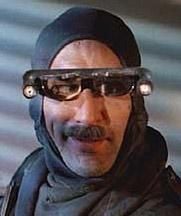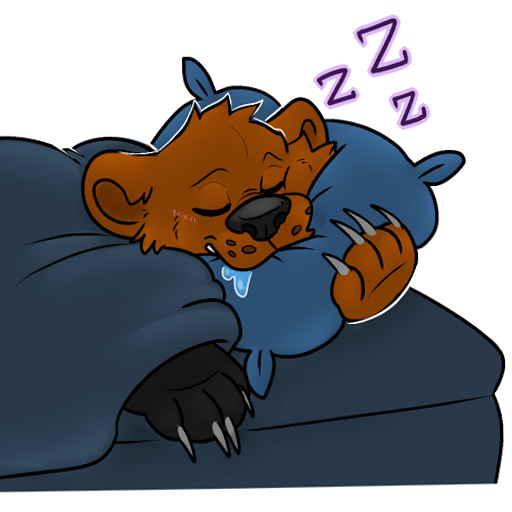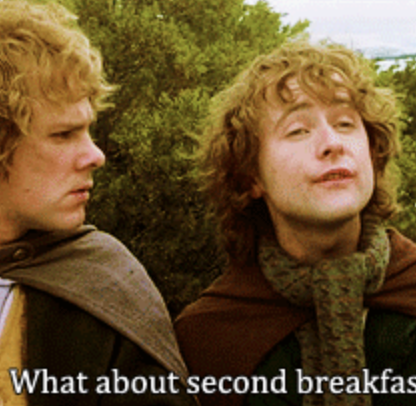I like the detail that there alien has 4(10) fingers as opposed to the 10(22) that the human has.
Now I get the joke.
Thanks!
All your base belong to us
Not to be that guy - just to make sure you nail it perfectly next time - it’s “all your base are belong to us”
What you say?
He said “all your base are belong to us” or something about zigs, it went by too fast
They set us up the bomb.
We get signal.
You gotta tell the alien that you use base-22
Base 20. 1,2,3,4,10,11,12,13,14,20
pretty sure base 4 goes “1, 2, 3, 10”
That’s base 5.
No it’s base 10
just as theres no single numeral for 10 in base 10, theres no numeral for 4 in base 4.
1 2 3 10 11 12 13 20 21 22
You forgot to count 0. The alien should write 4 as 10, not 4.
There are 10 types of people: Those who understand binary and those who don’t.
And those who didn’t expect the joke to be in base 3
You forgot the ones who expected it to be in base 4.
i still dont understand the joke…
In any Base-x system, one digit goes up to x - 1 (with base > 10 we use alphabet letters), then the next digit (to the left) is incremented.
So in our normal Base-10 system, you count up from 0 to 9 and then add a digit in the front and reset the other digits to get 10.This means, that in every Base-x system ‘10’ equals x.
So you can make the “There 10 types of people …” with every base as ‘10’ in Base-2 means 2, 3 in Base-3 and so on.
Octal is base 8. Decimal is base A. Hexadecimal is base G. Any questions?
Jesus Christ.
I just realized that we call binary base2 and there’s no 2 in that numbering system. We call hexadecimal base16 but there’s no 16 (at least not like we know it). But then why is base10 base10? We have a 10…but it’s not a single digit number.
Why is this reminding me of Project Hail Mary?
Every base has ten, but it’s made of two digits
Binary 0, 1, 10 Ternary 0, 1, 2, 10 … Decimal 0, 1, 2, 3, 4, 5, 6, 7, 8, 9, 10 Hex 0, 1, 2, 3, 4, 5, 6, 7, 8, 9, A, B, C, D, E, F, 10
Each has the right count of digits for its base before you go two-digit - binary has two (0, 1), etc
more precisely, every base has 10, but it’s usually not equal to ten. ten is a fixed value, while 10 depends on the base. you still count normally (one two three four five), even in a base two system. you just write it differently.
I don’t see the need to bring values into this, this is about the naming of number systems. We really have no more claim to ten being this many (…) than hexadecimal people have to claim ten has this many (…)
10 as the first overflow of digits is not a clear vlaue, it depends on the notation because its base is unclear.
Ten as the English word is 100% defined. The issue is we translate seamlessly between the word and number, but there really is no confusion when writing ten. 10 in hex has a different english word: sixteen.
English number names are mostly decimal-based, but their values are still fixed. Ten isn’t the word for “the first time our number system overflows”, it’s an amount.
So I disagree. Ten will always be (…) this many, because it’s an English word.
It’s because we count the 0… no? 0 and 1, base 2. 0123456789, base 10.
The same is true for all bases. What we call base-4 in base-10 is 0123. In base-16 it’s 0123456789abcdef, where f is what we would call 15
because then every base would be ‘base 10’
That or the decriarchy has been normalizing the decimal counting system as the default one for far too long!
Love that book!
(There is no 10 in base-10, which is why we construct it out of two other numbers)
What is this “8” you refer to? Here in the land of people without thumbs, 10 comes after 7.
If you have a problem with that you must also have a problem with the other two
What about unniftimal? (Base 37)
If there’s no agreed symbol for digit 37, you can call it Base 37A (or express it in another base of your choosing).
In case the formatting doesn’t work, that A is supposed to be subscript
every unsigned system is base -1 …or maybe -1+1
Can we all use base 12?
It will be a shower of shit for like 50 years but then it will be marginally better for pretty much everyone.
42* years. Centuries are now 84 years. We are living in the 19th century! I rate this idea 12/12.
5/7 movie
shut the f*k up rob
I rate it A/10, it’s a really efficient numbering system but I personally will have a really hard time adjusting
Some people argue that it would be harder to count on your fingers but we could just surgically give everyone more?
There are 12 sections on your fingers (excluding your thumb) you then use your thumb to count to 12 on one hand.
Two hands can allow you to count to 24. Which is way higher than 10. Base 12 is better!
Binary’s the way. 1023 with 10 fingers
I like the idea of some numbers being popular hand gestures.
4 - Fuck you; 17 - Shaka (hang loose); 18 - Metal horns; 19 - “I love you”; 132 - Double fuck you
With 2 hands you can count to 144.
- 12*12 on one hand + 12 on the other one
To be fair, you should be comparing 2 hands in base 12 to 2 hands in base 10, I. E. 20:24. Still a real difference, but not the 10:24 difference you pointed out.
Billions of years ago, our collective great-great-great-[several million more]-grandparent evolved a fin with a five bone structure. That idiot didn’t know anything about common denominators, and now we’re stuck with this numeric system that can’t divide things into thirds without causing issues.
Vertebrates appeared less than a billion years ago.
When was the last time you’ve actually needed to count something on your fingers?
✌🏻 days ago
Edit: 👌🏻 days ago
Binary is very good for counting with your fingers. With both hands you can count to 1023. One hand is 31, which is still usually more than you typically need to count. It’s also trivial to do once you know how binary works. It takes very little thought, though potentially the decoding could take a bit depending on your proficiency.
I made it to 27 on my first attempt, so def messed up somewhere. Also, my fingers don’t want to work that way.
Doable.
nah we should use binary, anything else is cringe.
50 years? We can’t even switch to metric.
Every civilised country on earth uses metric.
Only the really shitty ones use imperial. Imperial is just stupid (unless you count in base 12 ironically)
This would be great. I was researching why we don’t have 10 based clocks and then I saw a video about why a 12 and 60 based system is actually much more convenient and now I would love a ‘dozen based metric system’
50 years? I bet we couldn’t even agree on how to write “11” & “12” on such short notice. (See: date format, encoding, etc)
Well we write 12 like this: 10
It’s easy
The current standard seems to be an upside down 2 and 3
An upsidedown 3 is just a 3…?
Rotated, not flipped.
we could just go with the hexidecimal way and go with A,B,C for 10,11 and 12
No, 12 in base 12 is 10, not C. But yes, 10 can be A and 11 can be B
Dude’s out here trying to get us to use base 13.
Why not?
Why not use a large prime as the base?
Honnest answer, 1/2 in DEC is 0.5 easy. 1/2 in base 13 is .6666666666… Easy but ugly. You want a base that has comon fractions easily represented by decimals. People like dozenal since many fractions are easily represented. 1/2 = 0.6, 1/3 = 0.4, 1/4 = 0.3
I’m personally a fan of hexidecimal partly because I’m a programmer and partially because it can be halved several times
Is 1/2 in base 13 not 0.65?
Ahh yes, let’s introduce floating point rounding errors for one half. Sounds fun.
Lets use base Pi and put an end to that infinite digit bullshit.
Why base 12 though? Base 16 is even better. And base 60 is even better than that!
Common denominators. You can divide base 12 into half, thirds, fourths, and sixths and still use integers. I find thirds to be particularly useful, so base 16 is out. Base 60 can do it, but that’s getting unweildly.
Can’t do base 12 on fingers. I prefer base 8.
You can do base 12 on fingers! You count each of the 3 segments on each finger and ignore the thumb (you can use it to keep your place), so you can count up to 12 on just one hand! :)
8 fingered Johnny…
There are no common denominators in base 12 that you can’t use in base 84, and the latter also has 7 as a common denominator.
I, for one, vote for changing our base to 84.
Base 69?
Nice
I like that the alien has 4 fingers. Fitting!
It’s 10 fingers. Just keep your freaky 11 finger hands of this serious discussion
Wouldn’t it be 22?
Yes, in total, but 11 per hand
This one took me a bit.
Looks like 0100 rocks to me
That’s not 64 rocks
Edit: In C any number that starts with 0 is implicitly interpreted as an octal.
int i = 0100; // this is octal 100 i.e. 64I can tell from the upovotes vs. downvotes that I’m too old
00 = 0 01 = 1 10 = 2 11 = 3 100 = 4 …
In C any number that starts with 0 is implicitly interpreted as an octal
int i = 0100; // this is octal 100 i.e. 64
“2.5, 5, 7.5, TEN! See?”
Two point what?
Based.
I get this comic which is about translation errors.
Comments are wildly off …
…BASE!
Clearly the human uses base 22.
That’s very clever. Maths checks out.
Huh, that’s a good point. A better universal naming system would be something like “Base x+1”, with x being one integer lower than 10. So humans would use Base 9+1, and the alien would use Base 3+1.
*This has been on my mind all day and the more I think about it, the more obvious it becomes how fundamentally terrible the name “Base-10” is. How did this never occur to the people who coined the term? Even the system I suggested is flawed as it’s still trying to incorporate the same bad logic.
A better system would be something like Base 9, stopping shy of the respective 10 in each system, or if it needs to be clarified, Base 9+0, as 0 is the extra digit in the first place, not 10.
we’d only be able to represent bases for numbers with one digit though because what does base 15+1 mean? the 15 could be in any base higher than 5. the clearest way would probably be to just represent it with lines or something “base ||||||||||”
Base 16 is typically represented with letters being used as the extra numerals, so it would end up being F+1. Problem solved.
Base 16
Do you mean Base G?
What the fuck is G?
All your base are belong to us
what about numbers larger than 16?
We’ve got base 64, though it doesn’t quite follow the convention of starting with digits and following up with letters:
Base /+1 lol
what about numbers after 64? comment OP and i were trying to come up with a universal rule which we did in his response to my first comment
There are still 20 more letters that can be used as stand-ins. Things will get interesting if you try to go past Base 36, though.
this is exactly what i was trying to get at
Make up a new symbol?
Or use ancient scripts like Phoenician or Glagolitic.
It’s only 15 to us because we use base 10 (or 9+1). Like how we have 4 through 9, but that aliens in the picture only count up to 3.
In the case of a mismatch, the culture using the higher base would just translate down (Base 21+1 in the given scenario).
Single units would probably be the simplest method, but also wildly impractical as the base gets higher. You really want to count each digit just to figure out someone uses Base 100?
that’s fair, translating down is a good idea
wait until you find out about hexadecimal systems. It turns out we already have words for referring to numbers lol.
i know about hexadecimal, but what if you need to refer to a base larger than 16? i’m not saying it isn’t possible to create symbols for every number, i’m saying if you have to describe your base with more than one digit, you encounter a problem of not knowing what base that multi-digit number is in.
well no, i know, i’m just saying that’s it’s not really that big of a problem, unless you’re using octal, and you skill issue.
You should design base systems to be independent of each other, and hex does a really good job at this, because often times it’s prepended with 0x to imply hex.
I use base 8+1. What is 9?
What about Roman numerals?
I think that would confuse things more than it would help. It’s base 5, unless it’s base 10, unless it’s base 50, etc. And then there’s the rules designating numbers 1 below certain other numbers, or 2 below, depending on the system being used. That’s a whole web of complications when communication is already murky.
One glyph to one integer communicates the number system being used more clearly.
🤯
There are only 10 ways of doing things: the right way and the wrong way. (Programming joke)
There are actually 00000000000000000000000000000010 ways of doing things (in most languages)
Will only if your language is 1-index based, yuck. Otherwise there is just 0 and 1 way





















